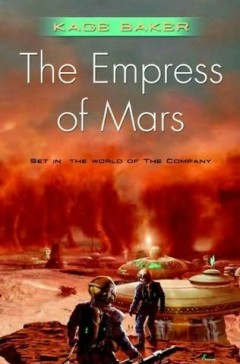
When Joe Haldeman, early in his career, penned his 1970s science fiction classic The Forever War, he claimed his niche in the genre. Whatever happened after that, however well or poorly he performed, however much or little he expanded his legacy, his place at the table was secure. The general consensus is that, despite a career with several successes, he has never managed to equal that early novel. My experience with Mr. Haldeman is too limited to opine on that point, but I can say that in 1997, when he wrote Forever Peace, he definitely fell short but did not miss by a large amount.
Julian Class, a physicist and conscript in the American armed forces, is the protagonist of a story that transpires in the 2040s. The United States, now turned into a centrally planned economy, is at war with guerrillas all over South America and Africa. The principal weapon on the ground is the soldierboy, a deadly robot used for anything from patrolling to reconnaissance to assaults and assassinations. The soldierboys are remote controlled by soldiers like Class who are “jacked in” to the soldierboy through a plug surgically inserted into their brains, Matrix-style (perhaps it would be fairer to say Neuromancer-style).
An entire squad of soldiers controlling the soldierboys attain a oneness with each other, such that everyone’s feelings, thoughts, and experiences are collectively shared. More than simply walking a mile in another’s shoes, this jacking is akin to walking an entire life in another’s shoes, socks, pants, underwear, and t-shirt. At one point Julian Class, who is black, reflects that there is no racism among these soldiers, because it simply is not possible to be racist when you have essentially been another race, or several other races, for days at a time. This idea anticipates a larger revelation made later, which becomes the main point of the book.
[continue reading…]
Help Promote Prometheus Unbound by Sharing this Post

 The Empress of Mars
The Empress of Mars
By Kage Baker
Trade paperback, 304 pages
Tor (2009), $10.87
The Empress of Mars was written by the late Kage Baker (June 10, 1952 — January 31, 2010; 1st name pronounced like ‘cage’). It started out as a novella (Asimov’s Science Fiction Magazine July 2003), which won the 2004 Theodore Sturgeon Award and was nominated for a Hugo Award and a Nebula Award, but was later expanded into the full-length novel published in 2009 that I review here.
The Empress of Mars is not Martian royalty. This is not Barsoom, the Mars of Edgar Rice Burroughs. You won’t find a John Carter-type hero fighting native Martians and rescuing princesses within these pages, though Baker does pay homage to Burroughs’ Mars tales. Tars Tarkas makes an appearance as the Martian Santa Claus, for example.
No, The Empress of Mars is a restaurant and bar owned by one Mary Griffith, an early settler of Mars and former biological scientist. A tough, motherly figure, Mary Griffith embodies the rugged individualism and pioneer spirit that pervades Baker’s The Empress of Mars. Baker’s tale is more scientifically literate than Burroughs’, and qualifies (mostly at least, see below) as hard science fiction, leavened with superior writing and humor. It is set some unspecified time after the year 2186 — marking a past event, the year the Kutuzov expedition discovered Olympus Mons is not an extinct shield volcano, it was the only date I recall seeing in the novel.
The story revolves around Mary, her three daughters, and a host of other quirky characters, some of whom she takes under her wing, others she befriends or does business with, as they deal with at first neglect by and then interference from the bureaucrats of the British Arean Company (BAC).
[continue reading…]
Help Promote Prometheus Unbound by Sharing this Post











